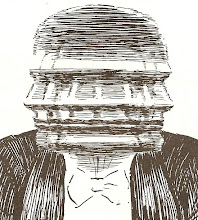Comma. You never want one of these anywhere near you [. . .] Every time you add a comma to the description of what you do, you suck a little bit more [. . .] Commas are for unfocused hacks.
The quote isn't quite so awesome in context – it's from an article about marketing, *ho-hum* – but what a line, huh? I dare you all to yell, "Commas are for unfocused hacks!" at a professional writer or editor, as soon as possible. Preferably during a job interview.
It's hard to believe this course is coming to an end already. I've been trying to think about what I should write about that would be fitting, in this final post, now that the course is almost over . . .
First, some trivia:
The most expensive word on Google is mesothelioma. If you want to buy a Google Ad that appears on searches for "mesothelioma", it'll cost you US$99.44 per click.
Secondly, Twitter:
It's a good and useful thing. Probably. I blogged about Twitter a while ago, but just yesterday I came across a really neat article about some ways that it might be worth your while. If you're curious about Twitter but still unsure (or if you're on Twitter already, but you have no idea what to do with it), try reading this.
Thirdly . . .
I like words. I like people. Blogging seems like a good compromise.
People often talk about the "dehumanising" effects of technology, but I don't really buy into that. I think the whole memesphere of the web is powered by people communicating with other people: it all feeds off the kick we get from exercising our empathy, from recognising differences and commonalities between ourselves and others. Jokes, stories, ideas. It's all good. (Mostly.)
Anyhow, I think it's something that we should feel good about. Sometimes people are awesome, and sometimes it's too easy to forget that.
(I think I read somewhere that happiness is "seven successful human interactions per day." I like that; it sounds achievable . . .)
Has this course changed the way you think about the internet? Have you enjoyed blogging?
I know I've enjoyed this blog. In fact, lately I've been neglecting my other blog to focus on this one instead (and to focus on my homework!) . . . but I'm looking forward to getting back to my old blog, soon. Blogging is fun and satisfying in a very unique way, I think.
When this course is over, will you keep blogging?
If you keep writing, I'll keep reading, I promise.
:)
–Tim






